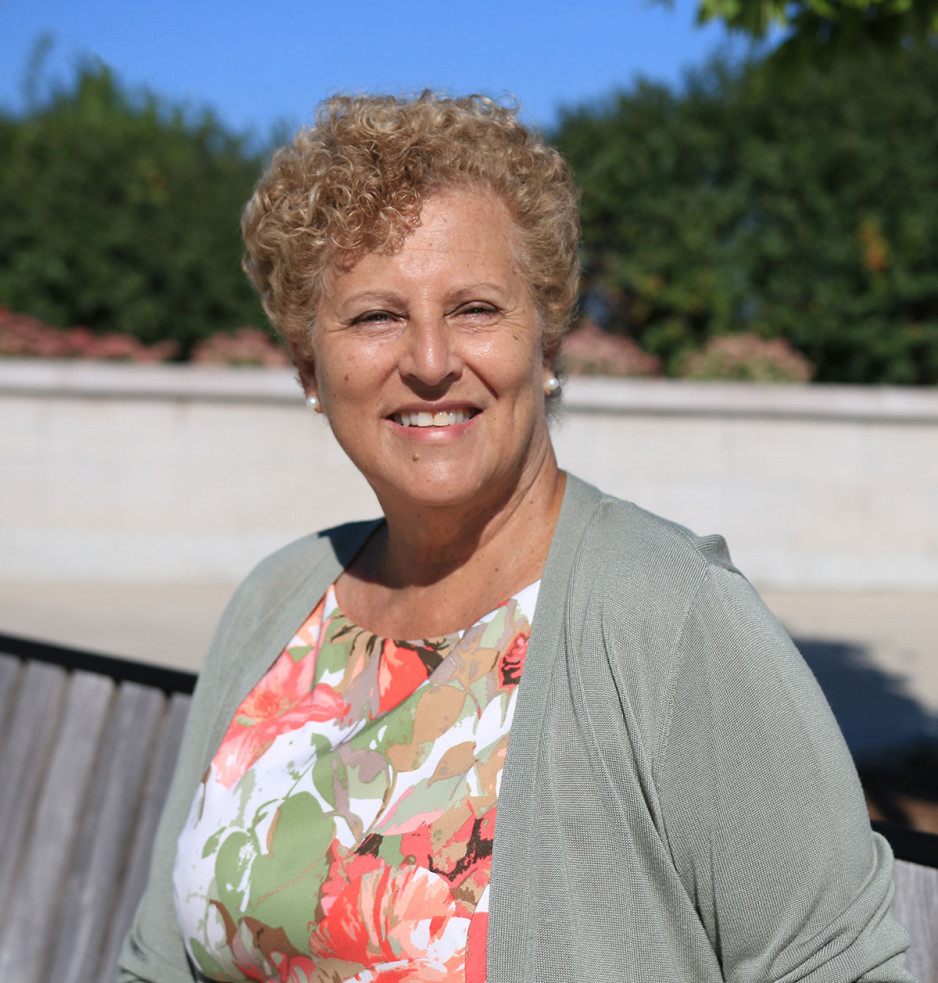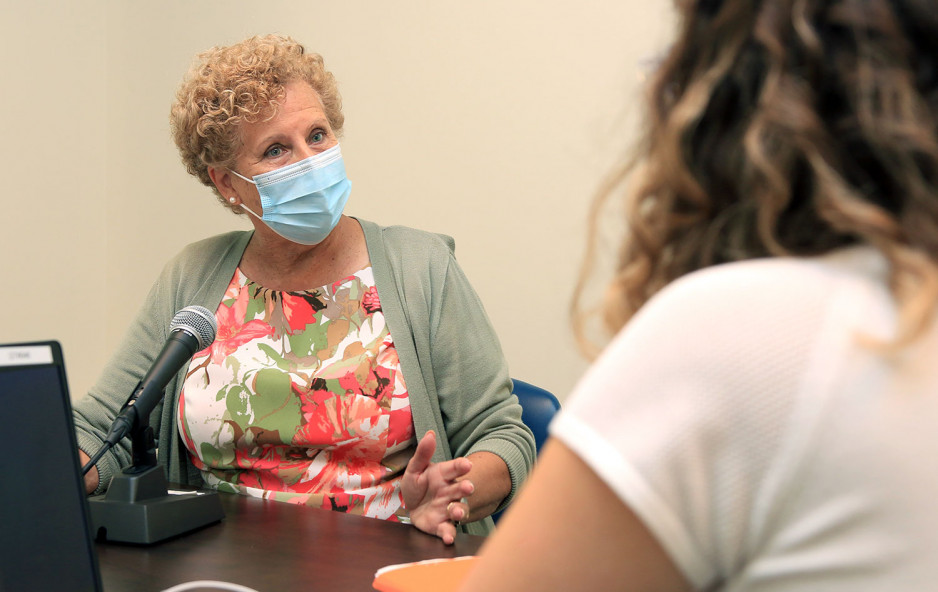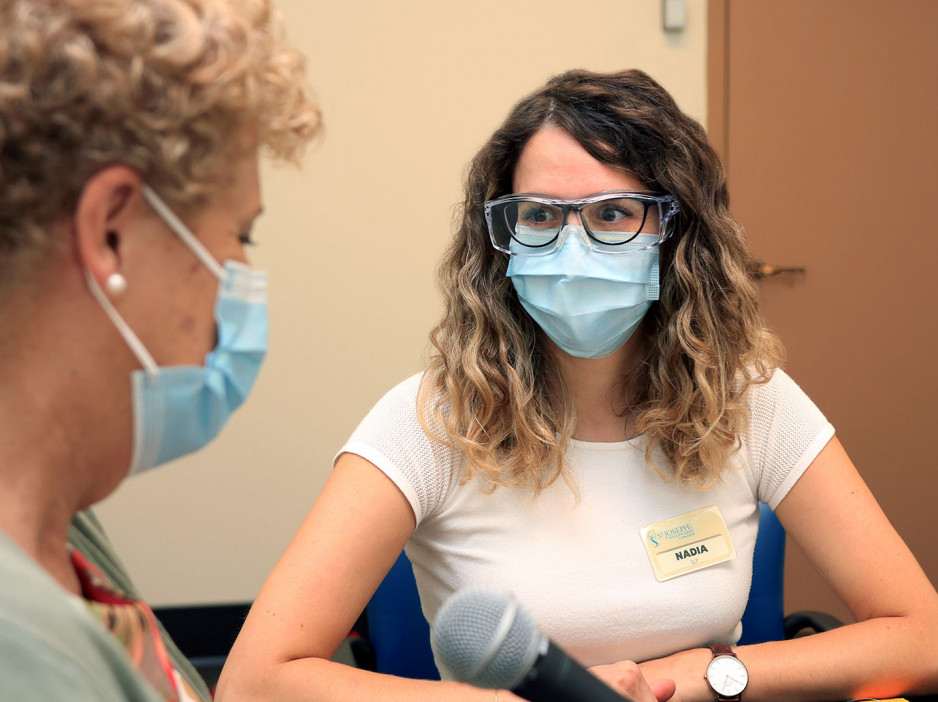Surviving COVID-19 – the recovery reality
Wendi Heal had heard the horror stories about those who ended up on a ventilator with COVID-19. And here was the lead COVID-19 physician at her bedside explaining her deteriorating condition and just that grim possibility.
“I remember asking him what my chances were for recovery once on a ventilator and I’ll never forget his words. He said he wouldn’t lie to me – that my chances drop to single digits. I asked him if I could have two days to see what happens, and those are the days I made calls to my husband, my son and my two brothers. I wanted to say the important things I needed to say.”
During those two terrifying days, "every time someone came into the room I thought ‘oh god oh god,’” recalls Wendi.
Willing herself to stay positive, Wendi miraculously began improving and avoided the ventilator, but it would only be the beginning of many more dark days and a struggle that persists today – some 10 months after leaving hospital.
Wendi, 69, is what some refer to as a COVID-19 long hauler, and while she continues to make good strides, problems with fatigue, memory, brain fog, lung capacity, gastrointestinal episodes, pain, and more are only now easing sufficiently to resume her life.
A small army of experts have helped to make that possible. Wendi is a patient of the Post-acute COVID-19 Program of St. Joseph’s Health Care London, which is ensuring her various lingering symptoms are being addressed. The program works in partnership with London Health Sciences Centre’s Urgent COVID Care Clinic (LUC3), a virtual clinic for people with COVID-19 in the London area offering rapid assessment, home oxygen monitoring and follow-up after initial diagnosis. When symptoms persist, patients may be referred to St. Joseph’s.
"It has really affected some people's quality of life and normal level of functioning."
“Having now worked directly with patients affected by acute COVID illness for more than year, we recognized that many patients are still suffering from symptoms months after their initial diagnosis,” explains infectious diseases specialist Dr. Megan Devlin. “It has really affected some people's quality of life and normal level of functioning. Some patients will have lingering shortness of breath, cough or chest discomfort, others significant fatigue, and others with long-lasting headaches, altered sense of smell, ongoing chest pain, or other symptoms.”
Patients are seen in person at St. Joseph’s where they may receive further breathing tests to help the team better understand if there are lasting changes from their acute COVID illness, and referrals within St. Joseph’s, including Parkwood Institute, for other symptoms. Through the program, Wendi has received care by an infectious diseases specialist, respirologist, occupational therapist, physiotherapist, speech language pathologist, psychologist, and neurologist.
Patients are grateful to be able to share their experience, have their symptoms investigated, and meet with members of the program team, some of whom also helped them along in their acute care journey at LHSC, says respirologist Dr. Michael Nicholson.
“We have captured a few people with underlying sequelae of the COVID infection that include asthma, lung scarring, tachycardia arrhythmias, but also no abnormalities, which can be reassuring to patients with lingering symptoms,” says Dr. Nicholson.
Each individual has a unique set of symptoms, which can include physical, cognitive, communication, as well as mental health effects, adds Saagar Walia, Coordinator, Rehabilitation Program at Parkwood Institute. Anxiety, depression and post-traumatic stress disorder are among a long list of possible side-effects.
“For some, targeted rehabilitation, education and intervention from occupational therapists, physiotherapists, social workers and speech language pathologists is needed in addition to medical follow-up,” says Saagar. “This is crucial for supporting individuals in their pathway to recovery.”
Wendi began feeling symptoms of COVID-19 on Dec. 20, 2020. Her son and his girlfriend had contracted the disease, so she feared the worst. But it would take seven days to get an appointment at an assessment centre, by which time she was so ill, she was taken by ambulance directly from the testing centre to the hospital. It was the start of journey she traces candidly, eloquently, revealingly, even humourously in a blog at wendiaheal.ca, providing a striking story of survival and an insider’s glimpse of a disease that has changed the lives of so many.
Wendi, who is thrilled to gradually be “fired” by her various specialists as she improves, ranks fatigue as her most severe symptom.
“It’s like being in a swimming pool and someone has pulled the plug and you can feel the water draining out. That’s how your energy feels. It’s at the cellular level. It’s not like you worked in the garden and you’re tired. As I was recovering, if I was awake for an hour, I would have to sleep for an hour. Just being awake and breathing would use up my energy levels. I still have days where it comes back.”
"I remember trying to rip the sheets off because anything that was touching was painful."
It’s only been in the last few months that Wendi, an avid walker, hasn’t needed a three to four-hour nap in the afternoon and could begin to venture out for short walks. She is now up to three kilometres – a far cry from her usual seven to 10 kilometres four times weekly.
Also surprising for Wendi was the pain she experienced with COVID.
“I was not expecting the pain. I had one incident in the hospital where it felt like sparklers going off in my head. I had touched my hair and there was an explosion of sparks that went right down my body. I remember trying to rip the sheets off because anything that was touching was painful. I don’t think people talk about how painful COVID is. Everything hurts – joints, muscles, head. It hurts to blink.”
Yet Wendi’s other challenges have been more distressing – memory issues, an inability to find words, challenges with problem solving and multi-tasking – all of which were strengths before COVID.
“Brain fog is exactly the right word. You feel disconnected, unable to see things clearly - literally and figuratively, explains Wendi.
Through speech language therapy at St. Joseph’s Parkwood Institute, Wendi Heal, a professional jazz singer, is re-learning how to find and hold notes as part of her recovery from COVID-19.
Particularly crushing for Wendi is an inability to resume what has always given her the greatest joy and energy – singing. A professional jazz singer, her various symptoms make it impossible to perform. But as with all things, Wendi maintains optimism she will get there, and gratitude for how far she’s come.
“I am in awe of all those who have provided care to me and those like me. I had some of the most brilliant, nurturing and caring people, and they were suffering too dealing with such a devastating level of death and destruction and worrying whether they were taking it home to their families.”
Through her blog, Wendi wants people to understand the reality of COVID so they will do their part to curb the pandemic. She has also joined multiple research studies.
“While in hospital, the duality of how I felt was strange,” she says. “I was so glad to be where they could take care of me and I was so unhappy that I had to be taken care of. I was scared to death and willing to do whatever they said to get better. Unlike other illnesses, it was clear no one could say exactly what that was. We have to help people figure out what this disease is all about so others are taken care of just as efficiently and gently as I have been.”
UPDATE - From Patient to Partner:
Wendi has now completed care with St. Joseph's Post-Acute COVID-19 Program but continues to use the tools and strategies she learned to manage some symptoms that still persist. Inspired by the post-COVID-19 care she received, Wendi has become a care partner with St. Joseph's, a role that allows her to share her experiences, participate in quality improvement and research initiatives, help shape programs and services, and serve on councils and committees.
Partnering with patients, residents and caregivers is a priority across St. Joseph’s, supported by the organization’s Care Partnership Office. Care partners are matched to initiatives based on their interests.
“Not in a million years did I think my experience with COVID-19 would lead me here – where I could do some good,” says Wendi. “Being a care partner has given me a whole new direction and purpose.”
Learn more about becoming a St. Joseph’s care partner
St. Joseph’s Post-acute COVID-19 Program
- Accessible by referral only from London Health Sciences Centre’s Urgent COVID Care Clinic (LUC3) or from St. Joseph’s Health Care London programs.
- Provides multi-disciplinary, in-person care and referrals for lingering COVID symptoms.
- Clinicians address each person’s unique set of symptoms, which can include physical, cognitive, communication, as well as mental health effects. Care may include medical treatment and/or rehabilitation with patients being seen at St. Joseph’s Hospital and St. Joseph’s Parkwood Institute.
Did you know
- Findings of a recent review by the Public Health Agency of Canada suggest more than eight in 10 people had at least one long-term symptom four to 12 weeks after diagnosis, and more than half reported lingering symptoms after 12 weeks.
- In Ontario, projections released Sept. 28 by the province’s COVID-19 Science Advisory Table report that about one in 10 individuals with COVID-19 infection will continue to have symptoms lasting more than 12 weeks (estimated 57,000 to 78,000 individuals in Ontario based on data up to August 2021).
- The longest follow-up study (12 months after infection) in Ontario found 12 per cent of all infected individuals had not returned to work. Among the 88 per cent who returned, 24 per cent had not returned to their pre-COVID-19 level of work.
- More than 100 symptoms, conditions or difficulties with usual activities were identified in individuals four or more weeks after a COVID-19 diagnosis.
- The most prevalent symptoms in both the short term (four-12 weeks after COVID-19 diagnosis) and long term (more than 12 weeks after diagnosis) were fatigue, general pain or discomfort, sleep disturbances, shortness of breath, anxiety or depression, cough and hair loss.
- Lingering symptoms can affect both young and older individuals regardless of the severity of their COVID-19 symptoms in the acute stage.


